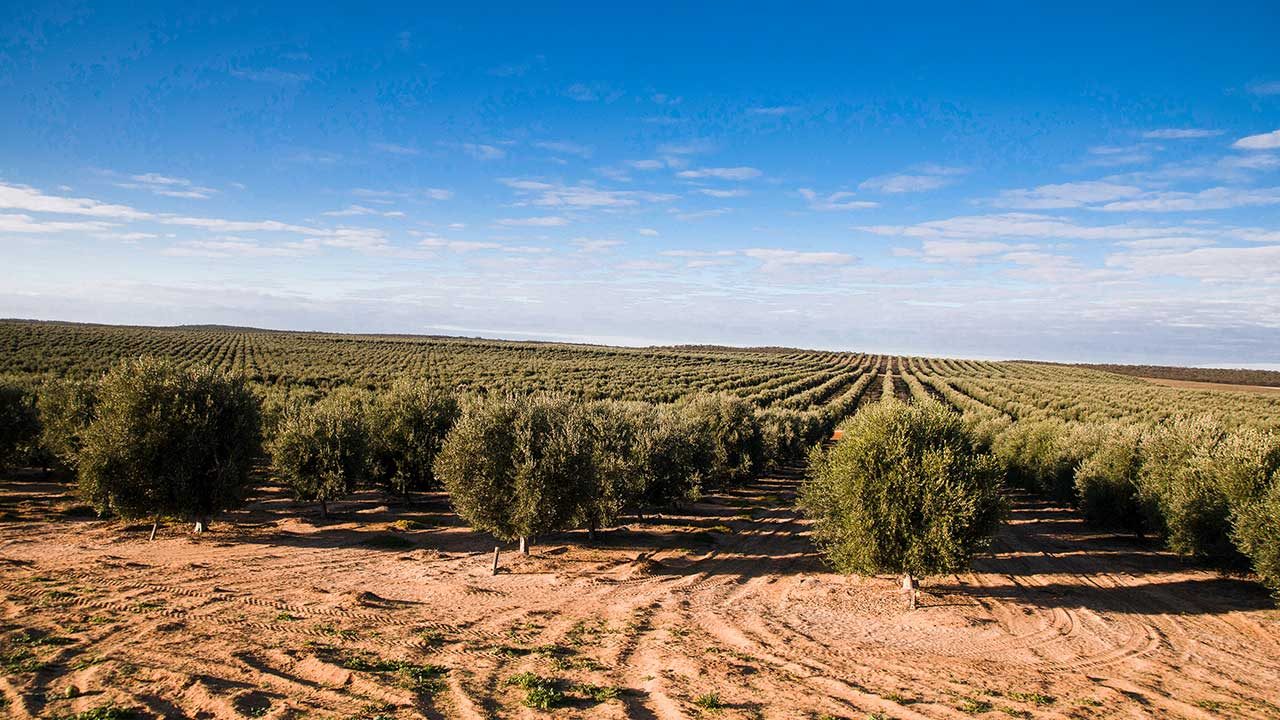This article is from the Australian Property Journal archive
THE Karte Olives and Viva Olives operations and four landholdings spanning 1,705 hectares in South Australia’s Riverland and Mallee regions have been listed for sale.
Owned by the current family-run business since 2018, Karte Olives and Viva Olives is a “tree to table” enterprise, selling table olives and extra virgin olive oils to retailers and wholesalers.
The olives are grown on a 1,700-hectare property in Karte, then processed and packaged at a facility on five hectares of land in Loxton, with each site consisting of two separate titles.
In Karte, the olive grove is a 772-hectare parcel with a 320-hectare orchard of 81,000 olive trees planted in 2001, growing Manzanilla, Frantoio, Kalamata, Barmea and Picqual varieties.
It is supported by a Mallee Prescribed Wells Area water licence for 1,700 megalitres and reliable annual rainfall in the region of 320 to 330 millimetres. Production reached a historical high of 4,000 tonnes in 2011.
That is accompanied by an adjoining 928-hectare farm with grazing and irrigation land that is suited to cropping, with historical use for potato production and broadacre farming. It also features eight useable centre pivot sites totalling 280 hectares, and four homes.
In Loxton, the two-hectare property at Lot 101 Starcevich Road is home to the olive processing plant, which can process 400 tonnes of table olives per annum, and has an olive oil line capable of pressing five tonnes of olives per hour.
The adjoining Lot 102 Mcfarlane Avenue is a vacant, three-hectare development site zoned for strategic employment.
Close to the South Australia-Victoria border, the Karte landholding is 38 kilometres from the township of Lameroo, 129 kilometres from Murray Bridge and 240 kilometres from Adelaide, with the Loxton processing facility located 100 kilometres north.
CBRE’s Phil Schell and Angus Bills are managing the sale campaign on behalf of Karte Olives and Viva Olives. The properties are available in one line or as four separate parcels, and interest is expected from existing olive industry participants and investors, while individual elements could also appeal to potato producers, land bankers and developers, according to Schell.
Other improvements across the properties include olive horticultural machinery, shedding and irrigation infrastructure in Karte, and warehousing with a showroom, office space and cool rooms capable of holding 422,000 litres of olive oil in Loxton.
Bills said the current owners have worked hard to restore maximum production to the operation in recent years, after a period of neglect. They have been advised by a horticultural specialist that with appropriate irrigation, fertiliser, and horticultural practice, the grove could achieve an average yield of 2,500 to 3,000 tonnes of olives per annum.
Expressions of interest close 7th December.




